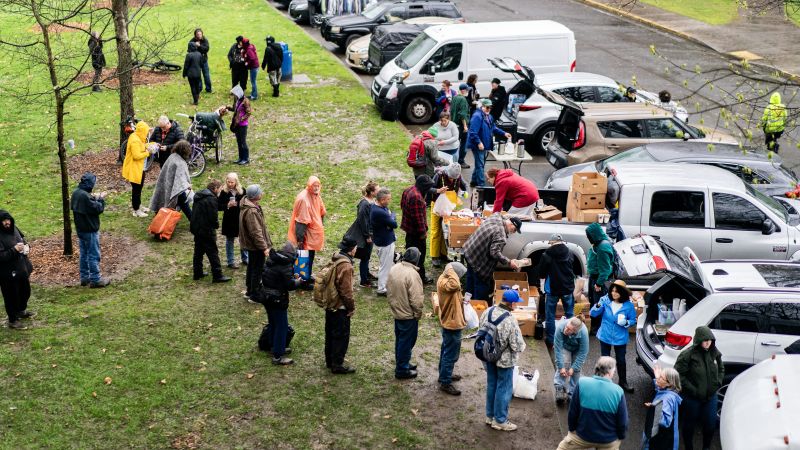Helen Cruz moved into a city park in Grants Pass, Oregon, to be close to the homes she cleaned for work but could never afford to live in herself. Little did she know that her tent in the park would place her in the middle of a national debate about whether cities can punish homeless individuals. The Supreme Court is set to hear arguments on Monday regarding the constitutionality of ticketing people living on the streets, specifically concerning whether it violates the Eighth Amendment’s prohibition against cruel and unusual punishment. This case is being closely watched by city and state officials grappling with rising homelessness rates and encampments across the country.
The surge in homelessness between 2022 and 2023 has prompted cities like Grants Pass to enact stricter enforcement of anti-camping ordinances, prohibiting people from sleeping in public spaces with “bedding” such as sleeping bags or bundled-up clothing. Critics argue that these ordinances disproportionately target the homeless population, who often have nowhere else to go. The city contends that these prohibitions apply to everyone, not just those who are unhoused. The debate regarding whether these ordinances target a class of people or specific conduct will be a focal point of the Supreme Court hearing.
The 9th US Circuit Court of Appeals ruled against Grants Pass, stating that the city could not enforce anti-camping ordinances against homeless individuals for merely sleeping outside with rudimentary protection from the elements. A lack of available shelter space in the city further complicates the issue, leaving many individuals with no other choice but to live outdoors. Government leaders, like California Governor Gavin Newsom, have weighed in on the matter, expressing the need to address homelessness without criminalizing individuals while also ensuring public safety and health standards are upheld.
Helen Cruz, who has received numerous tickets for violating the anti-camping ordinances, is struggling to pay off fines even after moving out of the park over a year ago. Each violation carries a hefty fine that can increase if not paid promptly, potentially resulting in jail time for repeat offenders. Cruz sees the ticketing as harassment and an attempt to push people experiencing homelessness out of Grants Pass entirely. Despite the challenges she faces, Cruz remains determined not to be forced out of the community where she now resides in a church and works as a caretaker. The Supreme Court’s decision in this case will have far-reaching implications for how cities address homelessness nationwide.


